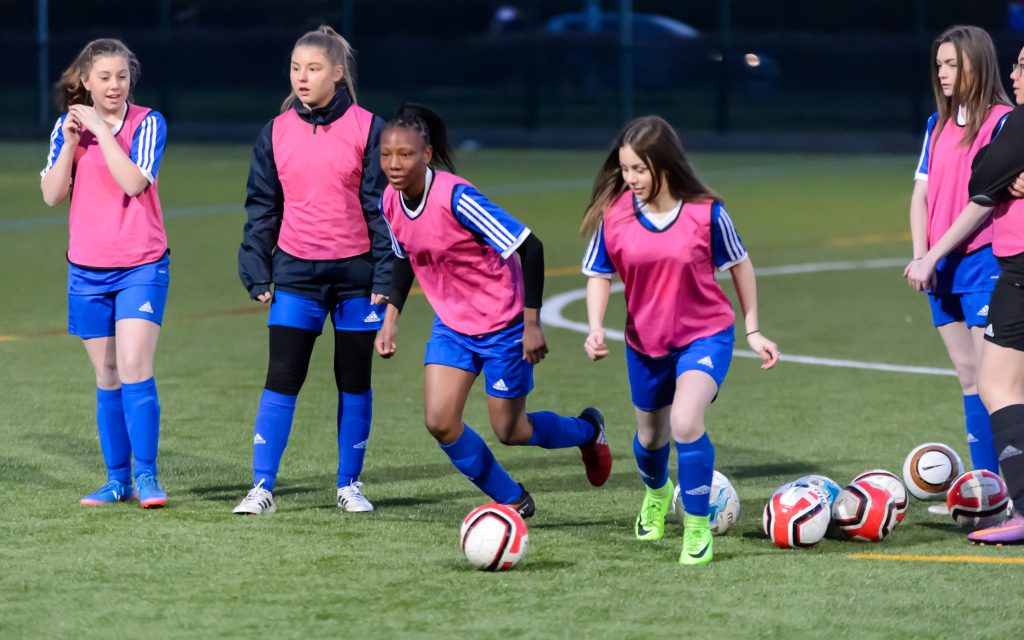
Women in Sport: What did your father say to you when you were young?
Pioneering female sailor Mandie Cran reflects on her experience as a young girl who dreamt of a career in a male-dominated sport.
Published
The latest Sport England Active Lives Children and Young People survey reveals persistent gender gaps in team sport and activity levels. The overall 22% gender gap in team sport participation has remained stable since last year, with 69% of boys aged 5-16 engaging in team sport compared to only 47% of girls in the same age group.
The success of the Lionesses has gone some way to inspiring girls to play football, with a 1.5% rise in participation levels. Our latest Dream Deficit research also found the 2023 World Cup had a positive impact on those who watched, with 9 in 10 saying in made them feel happy and proud. But girls who felt inspired to take to the field were mostly those who love sport already. This group represents just over a third of all girls.
Sport England (2023)
Sport England (2023)
The recent figures from Sport England reveal that girls’ overall activity levels are consistently lower, with 44% classified as active compared to 51% of boys. Sport, and team sport in particular, builds skills pivotal for life and missing out on positive opportunities to play can have an enduring and negative impact on girls.
There is a persistent 7% gender gap in participation between teenage girls and boys aged 13-16. This results from the cumulative impact of early years stereotyping, hitting new challenges of female puberty and the gaze of social media as our report Reframing Sport for Teenage Girls: Tacking Teenage Disengagement highlights. Despite positive trends in overall activity levels among older teens, attitudes towards sport and exercise remain stagnant and girls are far less likely than boys to enjoy sport, highlighting the urgent need for change.

Notably, Black British children have the most positive attitudes towards sports and exercise, yet Black British girls are substantially less active than Black British boys – this is the ethnicity with the largest gender gap. Black British girls are also 11% less active than White British girls. It is vital that this ethnicity gap is further understood.
Women in Sport CEO Stephanie Hilborne said: “Sport is not only vital for physical and mental wellbeing but is joyful and rewarding, building resilience and skills in leadership and teamwork. It is fantastic that more girls are playing football, thanks to the extraordinary efforts of the fabulous Lionesses, but the gender gap in team sport as a whole has not shifted and remains deeply entrenched.
“Mental health services are at breaking point, yet sport could be a powerful preventative measure against anxiety-related illnesses like self-harm which are blighting girls’ lives. It is not inevitable that girls drop out of sport. Rather, society makes it impossible for the majority of girls to feel free and fulfilled through sport.
Society makes it impossible for the majority of girls to feel free and fulfilled through sport.Stephanie Hilborne OBE, Chief Executive of Women in Sport
“We need to crush early years stereotyping and deliver sport within school and community settings that recognises the impact that stereotyping has, and the need to build skills and a sense of freedom amongst girls. If we fail to take drastic action, we are condemning another generation of girls to a lifetime of poorer health devoid of the joy, sense of belonging and community that can be built through sport, a privilege granted to far more men than women.”

Pioneering female sailor Mandie Cran reflects on her experience as a young girl who dreamt of a career in a male-dominated sport.

With high-profile sportsmen Ugo Monye, Andy Murray and Siya Kolisi voicing their support for women's sport, we reflect on why male allyship is essential to change the game.